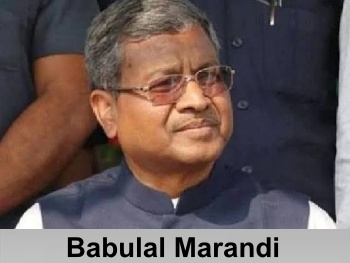 Jharkhand, a state located in eastern India, has a history steeped in socio-political evolution. Established on November 15, 2000, as a tribal state after bifurcation from Bihar, Jharkhand emerged as the 28th state of the Indian Union. The region, characterized by its rich mineral resources, diverse tribal communities, and a unique cultural landscape, has witnessed a series of leaders steering its course of development. The Chief Minister of Jharkhand, holding the highest executive authority in the state, plays a pivotal role in shaping policies and governance to address the distinctive needs of the region.
Jharkhand, a state located in eastern India, has a history steeped in socio-political evolution. Established on November 15, 2000, as a tribal state after bifurcation from Bihar, Jharkhand emerged as the 28th state of the Indian Union. The region, characterized by its rich mineral resources, diverse tribal communities, and a unique cultural landscape, has witnessed a series of leaders steering its course of development. The Chief Minister of Jharkhand, holding the highest executive authority in the state, plays a pivotal role in shaping policies and governance to address the distinctive needs of the region.
Formation of Jharkhand:
The formation of Jharkhand was a result of the persistent demand for a separate state by various socio-political groups, particularly those representing the tribal communities. This demand was rooted in the aspirations for self-governance and the desire to harness the economic benefits derived from the region`s abundant natural resources. Consequently, the Parliament passed the Bihar Reorganization Act in the year 2000, leading to the establishment of Jharkhand as an independent state.
Election of Chief Minister:
The Chief Minister of Jharkhand is elected by the Members of the Legislative Assembly (MLAs) through a democratic process. The Governor of the state, appointed by the President of India, invites the leader of the majority party or coalition to form the government. The Chief Minister is expected to prove their majority on the floor of the assembly within a stipulated time. This electoral mechanism ensures that the leader entrusted with the responsibility of governance enjoys the support of the legislative body.
Power and Responsibilities:
The Chief Minister of Jharkhand is vested with significant executive powers. They are responsible for the administration of the state, policy formulation, and decision-making. The Chief Minister oversees various government departments and agencies, striving to address the socio-economic challenges faced by the diverse population of Jharkhand. Additionally, the Chief Minister plays a crucial role in liaising with the central government to secure resources and support for the state`s development projects.
President`s rule in Jharkhand
President`s rule was invoked in Jharkhand three times, reflecting a turbulent political landscape. In 2009, the state witnessed central intervention from January 19 to December 30, followed by a shorter period from June 1 to September 11 in 2010, and then again from January 18 to July 13 in 2013. These instances indicated a recurring inability of the state government to maintain stability and governance, prompting the central authority to step in. The frequent imposition of President`s rule underscored challenges in political leadership and governance, raising concerns about the region`s capacity to sustain a stable administration during critical periods.
List of Chief Ministers of Jharkhand:
Here is a comprehensive list detailing the Chief Ministers of Jharkhand since its formation in 2000:
| Chief Minister | Tenure | Political Party |
| Babulal Marandi | 2000 - 2003 | Bharatiya Janata Party |
| Arjun Munda | 2003 - 2005 | Bharatiya Janata Party |
| Shibu Soren | 2005 – 2005 (10 days) | Jharkhand Mukti Morcha |
| Arjun Munda | 2005 – 2006 | Bharatiya Janata Party |
| Madhu Koda | 2006 – 2008 | Independent |
| Shibu Soren | 2008 – 2009 (145 days) | Jharkhand Mukti Morcha |
| Shibu Soren | 2009 – 2010 (153 days) | Jharkhand Mukti Morcha |
| Arjun Munda | 2010 - 2013 | Bharatiya Janata Party |
| Hemant Soren | 2013 - 2014 | Mukti Morcha |
| Raghubar Das | 2014 - 2019 | Bharatiya Janata Party |
| Hemant Soren | 2019 – present (incumbent) | Mukti Morcha |






